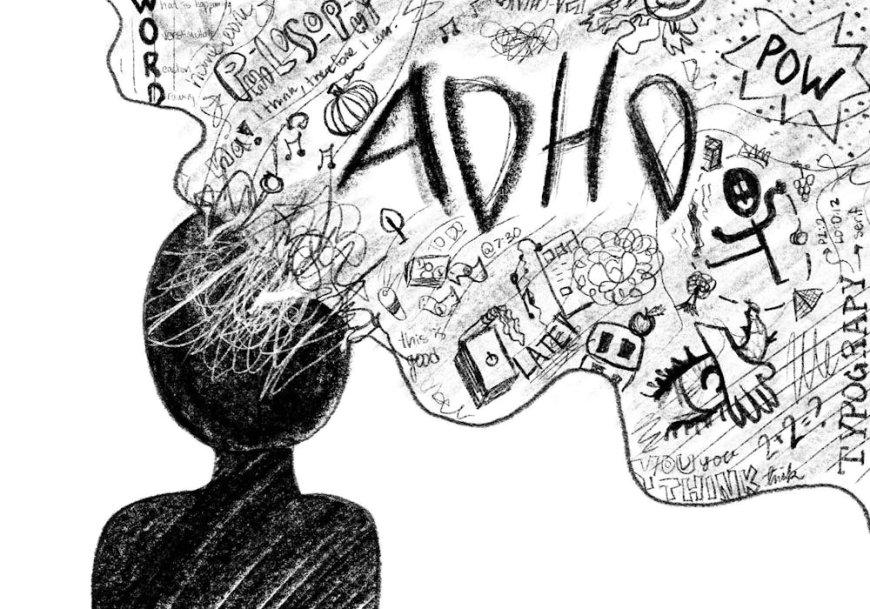The Impact of ADHD Medication on Academic Achievement

Among the most prevalent neurodevelopmental illnesses, Attention-Deficit/Hyperactivity Disorder (ADHD) affects both adults and children. Symptoms like impulsivity, hyperactivity, and inattentiveness are what define it. These symptoms can negatively impact a student's academic performance by making it difficult for them to concentrate, finish assignments, and properly manage their time. Many people with ADHD are administered drugs to address these issues; the most frequent treatments are stimulants like methylphenidate (Ritalin) and amphetamines (Adderall). There are also non-stimulant drugs like atomoxetine (Strattera).
This article examines the potential long-term implications and the significance of an all-encompassing treatment strategy while examining the positive and negative effects of ADHD medication on academic achievement.
ADHD Medication's Effect on Improving Attention and Focus
The capacity of ADHD drugs, especially stimulants, to increase focus and attention is its main advantage. The way that stimulants function is by raising the brain's concentrations of dopamine and norepinephrine, neurotransmitters that are vital for motivation, focus, and cognitive function. This enables many ADHD students to focus for extended periods of time, which is necessary for finishing tasks, paying attention in class, and attending lectures.
Students with ADHD may find it difficult to focus in class, ignore distractions, and obey directions. Medication for ADHD can lessen these behaviors by improving concentration and self-control. Research have revealed that children on medicine frequently do better on assignments that need for extended concentration, such reading and puzzles.
In contrast to children with ADHD medication who were not medicated, children with ADHD who were taking medication had a significant improvement in attention span, task completion, and academic achievement, according to a research by the American Academy of Pediatrics. This shows that students' capacity to interact more deeply and meaningfully with their academic subject may be directly impacted by medicine.
Effects on Academic Performance
Although taking an ADHD medication can help with focus, there is a more nuanced relationship between the drug and overall academic success. Academic success include not only focus but also abilities in cognitive processing, memory retention, and organizational skills—areas where ADHD can pose serious problems.
It's possible that medication won't be enough to solve every one of these problems. For example, whereas stimulants can increase focus, they have no direct influence on abilities like efficient time management or task organization. Therefore, even if their focus gets better, some students can still have trouble submitting assignments on time or getting ready for tests.
According to a number of studies, taking an ADHD medication improves academic performance somewhat, especially in subjects like math and reading comprehension. The advantages, however, frequently depend on how effectively the drug is customised to the patient's needs, including the right dosage and timing.
Furthermore, taking medication for ADHD is not a panacea. While staying focused and finishing projects could be aided, improved grades are not a given. Medication frequently has to be used in conjunction with other interventions, such as behavioral therapy, academic modifications, and organizational coaching, to produce noticeable gains in academic performance.
Possible Adverse Reactions and How They Affect Education
Medication for ADHD can be helpful, but it can also have adverse effects that could impair academic performance. Sleeplessness, appetite loss, and elevated anxiety are typical side effects that can hinder a student's academic performance. For instance, sleep disruptions might result in weariness, which impairs cognitive function and concentration when students are in class.
While their focus is better, students may experience emotional blunting, which makes them feel less emotionally involved or motivated. This may result in a decline in spontaneity and originality, which are crucial for some learning processes like writing essays or solving problems in open-ended assignments.
While research is still being done, long-term stimulant usage has also sparked worries about possible effects on brain development. Long-term use of ADHD medication may change brain chemistry in ways that could impact memory and learning, according to some research. To completely comprehend the long-term impacts, more research is necessary as these effects appear to differ from person to person.
The Value of an All-Inclusive Treatment Strategy
Due to the complexity of ADHD and the conflicting evidence about the effects of medication on academic performance, professionals stress the significance of a thorough treatment strategy. To treat the whole range of ADHD-related issues, this approach should incorporate behavioral techniques, academic assistance, and lifestyle improvements in addition to medication.
Behavioral therapy, for instance, can help students learn time management skills, how to divide complicated work into smaller ones, and how to cope with impulsivity and hyperactivity. Academic accommodations can also assist students in overcoming the challenges presented by ADHD. Examples of these accommodations include extra time for exams, preferred seating, and help taking notes.
Furthermore, modifying one's lifestyle to include regular exercise, a balanced diet, and enough sleep is essential for controlling symptoms of ADHD. Research have demonstrated that exercise helps people with ADHD become more focused and less hyperactive. In a similar vein, maintaining the energy and cognitive function required for academic performance depends on good diet and sleep.
The Significance of Personal Variations
It's critical to remember that everyone with ADHD is different, and that different medications have varying degrees of success. After beginning medication, some children may show significant gains in their academic performance, while others may only notice slight adjustments. The effectiveness of medicine is dependent on a number of factors, including the type of ADHD (inattentive, hyperactive-impulsive, or mixed), the severity of symptoms, and the existence of co-occurring illnesses like anxiety or learning difficulties.
Furthermore, different students respond to medications differently, so what works for one student might not work for another. It can take some trial and error to find the proper drug and dosage, necessitating close observation by medical professionals and input from educators, parents, and students.
Misuse of ADHD Medications and Ethical Issues
The possible misuse of ADHD drugs, especially stimulants, is an additional factor to take into account. These drugs may be used as cognitive enhancers by certain kids who do not have ADHD in the hopes of increasing focus and academic achievement. But in addition to being against the law, this technique has a high danger of reliance and a host of other negative consequences, such as anxiety, heart issues, and even psychosis.
The effectiveness of prescribed medicine for ADHD children must be adhered to in order to sustain its effects. Medication irregularities or missed dosages might cause mood and concentration swings that exacerbate academic difficulties.
In summary
Students with ADHD may find it easier to concentrate and pay attention while using medication to help with concentration and attention issues. Its effect on overall academic performance is complex and dependent on a number of variables, such as the degree to which co-occurring disorders are present, how well an individual responds to medication, and the individual's history of ADHD.
Medication is a useful tool for treating ADHD, but it works best when combined with behavioral techniques, academic assistance, and lifestyle modifications in a holistic treatment program. As the field of study advances, it is critical to understand that there is no one-size-fits-all approach when it comes to ADHD medication, and that its impact on academic achievement should be weighed against a person's unique needs and objectives.
What's Your Reaction?


























